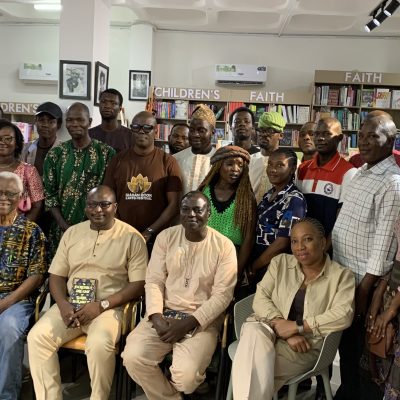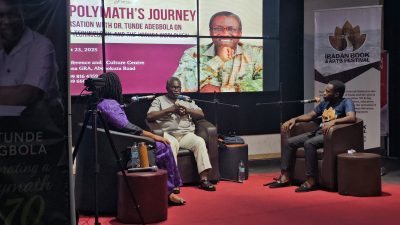Renowned Kenyan author and one of Africa’s most decorated writers, Ngugi wa Thiong’o has passed away on Wednesday, May 28, 2025, as announced by his daughter, Wanjiku Wa Ngugi, in a Facebook post. He was 87 years old. A novelist, playwright and literary scholar, he was a staunch advocate of indigenous language for African literature.
Born on January 5, 1938, in a rural Kenyan village during British colonial rule, Ngugi wa Thiong’o was widely regarded as one of Africa’s greatest writers, known for his influential works that often addressed colonialism, cultural identity, and oppression.
His debut novel, Weep Not, Child, was published in May 1964, becoming the first novel in English to be published by a writer from East Africa.
Later that year, having won a scholarship to the University of Leeds to study for an MA, Ngũgĩ travelled to England, where he was when his second novel, The River Between, came out in 1965. The River Between, which has as its background the Mau Mau Uprising, and describes an unhappy romance between Christians and non-Christians, was previously on Kenya’s national secondary school syllabus. He left Leeds without completing his thesis on Caribbean literature, for which his studies had focused on George Lamming.
Some of his notable works include: The River Between (1965), A Grain of Wheat(1967), Petals of Blood (1977), Devil on the Cross (1980), originally written in Kikuyu as a political statement and the play, The Trial of Dedan Kimathi.
Ngugi wa Thiong’o’s life was marked by both literary success and political activism. In 1976, Thiong’o helped to establish The Kamiriithu Community Education and Cultural Centre which, among other things, organised African Theatre in the area. The following year saw the publication of Petals of Blood. Its strong political message, and that of his play Ngaahika Ndeenda (I Will Marry When I Want), co-written with Ngũgĩ wa Mirii and also published in 1977, provoked the then Kenyan Vice-President Daniel arap Moi to order his arrest. Along with copies of his play, books by Karl Marx, Friedrich Engels, and Vladimir Lenin were confiscated.He was sent to Kamiti Maximum Security Prison, and kept there without a trial for nearly a year.
He was imprisoned in a cell with other political prisoners. During part of their imprisonment, they were allowed one hour of sunlight a day.
Due to his writing about the injustices of the dictatorial government at the time, Ngũgĩ and his family were forced to live in exile. Only after Arap Moi, the longest-serving Kenyan president, retired in 2002, was it safe for them to return
During his time in prison, Ngũgĩ decided to cease writing his plays and other works in English and began writing all his creative works in his native tongue, Gikuyu.His time in prison also inspired the play The Trial of Dedan Kimathi (1976). He wrote this in collaboration with Micere Githae Mugo.
In March 2021, his book The Perfect Nine became the first work written in an indigenous African language to be longlisted for the International Booker Prize, with Ngũgĩ becoming the first nominee as both the author and translator of the book.
He had taught at various universities worldwide, including Yale University and the University of California, Irvine.
*First published in THISDAY Newspapers












